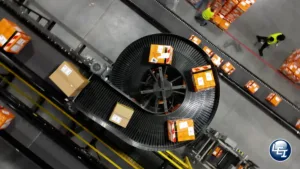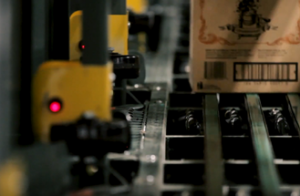Table of Contents
In today’s fast-paced industrial world, efficiency and precision are non-negotiable. At the heart of these advancements lies PLC Controls, a discipline dedicated to designing and implementing systems that manage and automate processes across industries. From manufacturing plants to logistics operations, PLC Controls ensures seamless operation, reducing human error and optimizing productivity.

What is PLC Controls?
PLC Controls is a branch of engineering focused on creating and managing control systems. These systems are designed to regulate and automate machinery, processes, and devices. By leveraging feedback loops, mathematical models, and advanced technologies, controls engineers develop systems that ensure desired outcomes with minimal variability.
For instance, in a manufacturing plant, a controls engineer might design a system that regulates conveyor speeds, ensuring products are uniformly processed and packaged. This discipline plays a critical role in industries like automotive, aerospace, pharmaceuticals, and logistics.
Key Components of PLC Controls
- Control Systems: At the core are control systems, which can be categorized into open-loop and closed-loop systems. While open-loop systems operate without feedback, closed-loop systems rely on real-time data to adjust processes and maintain accuracy.
- Programmable Logic Controllers (PLCs): PLCs are industrial computers used to control manufacturing processes. They are programmed to execute specific tasks, such as starting and stopping machinery or adjusting temperature settings.
- Human-Machine Interfaces (HMIs): HMIs act as the bridge between operators and machines. These interfaces provide visual representations of processes, allowing operators to monitor and adjust parameters easily.
- Sensors and Actuators: Sensors gather data from the environment, such as temperature, pressure, or speed, while actuators execute actions based on the control system’s commands.
- Software and Networking: Advanced software tools enable engineers to design, simulate, and test control systems. Networking technologies ensure seamless communication between system components.
The Role of PLC Controls in Automation
Automation minimizes human intervention, improving safety and efficiency. Some key applications of PLC Controls in automation include:
- Industrial Robots: Controls engineers design systems that guide robotic arms in performing precise tasks, such as assembling car parts or packaging goods.
- Process Control: In industries like oil and gas, PLC Controls ensures processes like refining and chemical production are executed with precision.
- Material Handling: Automated conveyor systems, guided by control algorithms, streamline the movement of goods in warehouses and distribution centers.
Benefits of PLC Controls
- Improved Efficiency: By automating repetitive tasks, PLC Controls significantly boosts productivity.
- Enhanced Safety: Automated systems reduce human involvement in hazardous tasks, minimizing the risk of accidents.
- Cost Savings: Efficient systems reduce energy consumption and material waste, lowering operational costs.
- Consistency: Automation ensures processes are performed uniformly, maintaining product quality.
- Scalability: Control systems can be adapted and expanded to meet growing operational demands.
Challenges
While PLC Controls offers numerous benefits, it also comes with challenges:
- Integration Complexity: Combining new control systems with existing infrastructure can be daunting.
- Cybersecurity Risks: As systems become more connected, protecting them from cyber threats is paramount.
- Skill Gaps: The rapid evolution of technology demands continuous learning and adaptation by engineers.
Lafayette Engineering: Leaders in Engineering
Lafayette Engineering is a premier provider of engineering solutions, specializing in optimizing material handling and conveyor systems. Their expertise spans the design, programming, and integration of sophisticated control systems tailored to clients’ unique needs.
From creating intuitive HMIs to implementing state-of-the-art PLCs, Lafayette Engineering delivers end-to-end solutions that drive efficiency and reliability. Their commitment to excellence has made them a trusted partner for industries across the USA.
Real-World Applications
- Automotive Industry: PLC Controls ensures precision in assembling vehicles. Automated systems regulate tasks like welding, painting, and quality inspection, maintaining high standards while reducing production time.
- Pharmaceutical Manufacturing: In the pharmaceutical sector, PLC Controls guarantees the accurate mixing of ingredients and consistent packaging of medicines, adhering to strict regulatory standards.
- Warehousing and Logistics: Advanced control systems optimize material handling equipment, such as conveyors and sorters, ensuring swift and accurate order fulfillment.
- Energy Sector: PLC Controls plays a vital role in renewable energy systems. For instance, it manages the operation of wind turbines and solar panels, maximizing energy output and efficiency.
Future Trends
As technology evolves, so does the field of PLC Controls. Key trends shaping the future include:
- Artificial Intelligence (AI): Integrating AI into control systems allows for predictive maintenance and adaptive learning, enhancing system performance.
- Internet of Things (IoT): IoT-enabled devices provide real-time data, improving system monitoring and decision-making.
- Edge Computing: Processing data closer to the source reduces latency, enabling faster and more efficient control.
- Sustainability: PLC Controls is driving energy-efficient solutions, supporting industries’ goals to reduce their environmental footprint.
Frequently Asked Questions
Q1: What is the primary goal of PLC Controls? A: The primary goal is to design and implement systems that automate processes, ensuring efficiency, accuracy, and safety.
Q2: How does a PLC work in a control system? A: A PLC is programmed to monitor inputs, process data, and execute outputs, such as starting a motor or adjusting a valve.
Q3: Why is cybersecurity important? A: As control systems become interconnected, robust cybersecurity measures are essential to prevent unauthorized access and protect sensitive data.
Q4: What industries benefit most? A: Key industries include manufacturing, automotive, pharmaceuticals, logistics, and energy.
Q5: How can Lafayette Engineering help my business? A: Lafayette Engineering offers customized control solutions that optimize operations, reduce costs, and enhance productivity.
Conclusion
PLC Controls is the backbone of modern automation, driving efficiency and innovation across industries. By harnessing cutting-edge technologies and expertise, companies like Lafayette Engineering ensure businesses stay competitive in an ever-evolving market. Whether it’s optimizing a conveyor system or automating a production line, PLC Controls continues to shape the future of industrial operations.



